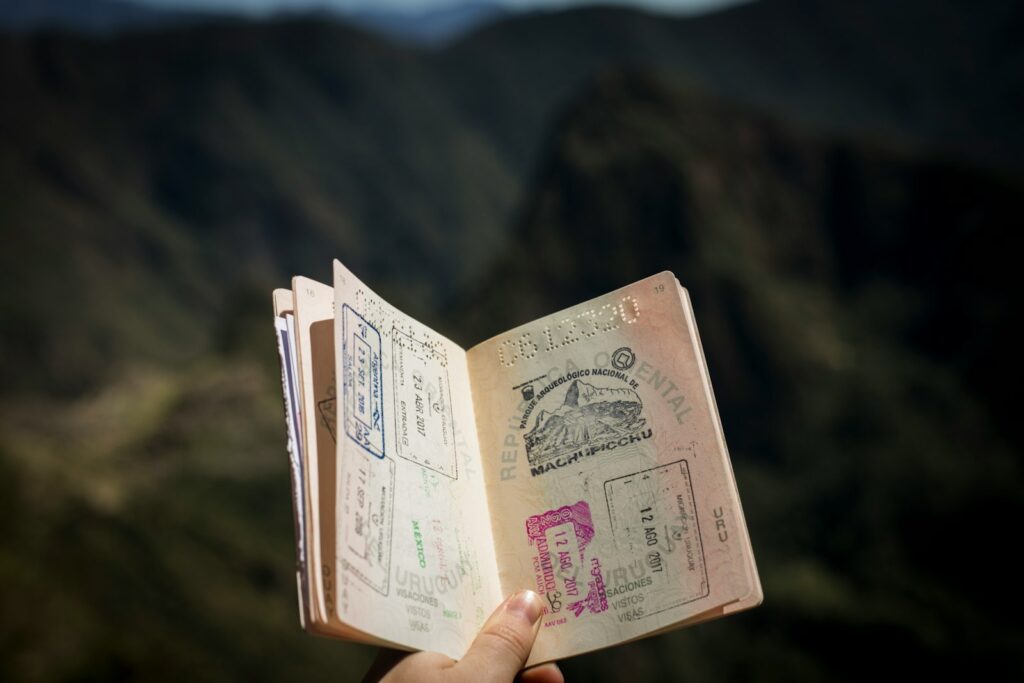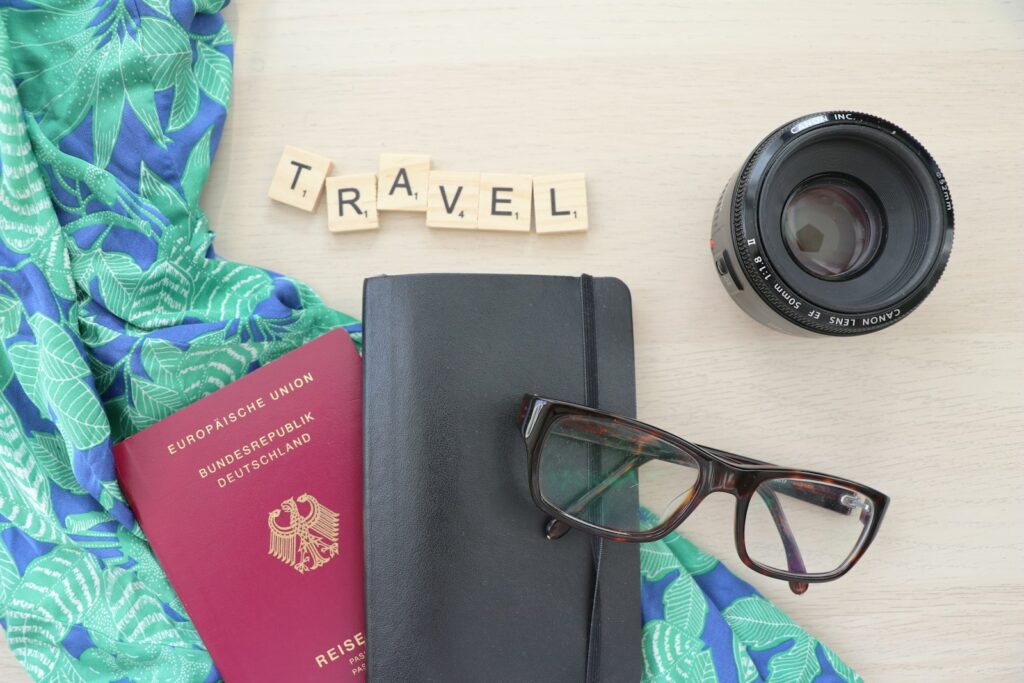If you’re the first person in your family to consider international travel, this is for you
Traveling can be an exciting experience, especially for first-time Nigerian travellers.
Whether you are embarking on a domestic or international trip, it is important to be well prepared and informed to ensure a safe and enjoyable journey.
I know the feeling of being the first person in your family to ever step foot into an airplane. The excitement, anticipation and lack of information can cause a stressful experience.
Today, I’ll break down what you need to know before you can travel as a Nigerian passport holder. We’ll be getting down to the very basics.
There are two main important documents you need to travel.
International Passport
The first thing you need is your Nigerian International Passport. If you plan to travel to a different country outside Nigeria, aka internationally, your NIN and National ID will not be enough.
For Domestic flights, you can use your national ID as a form of identification.
The International Passport serves as the only valid form of Identification and interestingly, it is a property of the Federal Republic of Nigeria.
No matter where you travel to, please ensure that you keep your International Passport safe at all times. If you lose your passport, the only place you will be able to travel to, will be back to Nigeria using an emergency travel document.

If you have never applied for an international passport before, you can apply online for first-time passports as well as passport renewals.
Choose the “Start Application” box and fill out the details as needed. Make sure to follow the instructions as outlined on the page. You can choose between a 32 and a 64-page passport booklet.
When you complete the payment, you will have to print the slip on the final page, as well as copy of your receipt.
The next step is to book a processing appointment. The appointment is to collect your biometric data and your passport photograph.
The processing time varies but once your passport is ready, you will be contacted to come for collection.
Travel Visa
I’ve heard some Nigerians confuse the visa and international passport.
A visa is a document that grants you entry into a country outside of your country of origin.
There are multiple types of visa depending on your reason for coming to visit the destination country.
Some popular visas available to Nigerians include:
- Student visa – for study in school (may or may not include ability to work)
- Work visa – allows you pursue full time and/or part time work in the country
- Business visas/Investor visas – provided to important investors in a country
- Tourist visas – usually 30 to 180 days, allowing you to visit the country for a short period of time on vacation or leisure
- Digital Nomad visas – a newer visa for remote workers and freelancers allowing them to stay longer in a country (usually a minimum of 6 months and up to 5 years in some cases) to work from home while taking advantage of the new environment and resources
- Transit visas – for travellers passing through a country on layover to another country
Depending on your destination and your unique situation, you can avail any of the visa types above to allow you safely enter into another country without fear of deportation.
Many countries stamp your visa onto your passport while others may issue a physical piece of paper that you have to carry with you while you travel.
To apply for a visa, you must first have a valid International Passport. Many countries require at least 6 months validity on the passport. In some cases, they may require up to 14 months validity on the passport.
Validity refers to how long before your passport expires. We currently have the option of a 5 year or 10 year passport validity for the Nigerian passport.
Now that we know what documents you need to be able to leave Nigeria on a trip to visit other countries, here are other important tips every Nigerian traveller should consider.
- Research your destination: Before embarking on your trip, it is important to conduct thorough research on your destination. This includes understanding the culture, customs, and laws of the country you will be visiting. You should also research the local weather, currency exchange rates, and transportation options. Other important factors include cost of living, racism, and general demeanour of the locals.
- Plan your itinerary: Nigerians often dislike planning their trips. We have this “can-do” attitude but having a well-planned itinerary can make your trip smoother and more enjoyable. If you’re travelling for a vacation, you should plan your activities in advance and make sure to leave enough time for rest and relaxation. If you’re relocating, planning ahead for at least the first 3 months goes a long way in helping you settle down easily.
- Pack appropriately Packing for a trip can be a daunting task, but it is important to pack only the essentials. Make sure to pack clothing suitable for the local climate and culture. You should also pack any necessary medications, toiletries, and electronics. I know you will still pack Nigerian foods but make sure to research what is allowed through customs in your destination country. Otherwise, it will end in premium tears.
- Prepare your documents: Make sure to have all the necessary documents for your trip, including your passport, visa, and travel insurance. Keep your documents in a safe and accessible place, such as a travel wallet or pouch. Countries differ in their requirements. Some may require a yellow fever card, vaccination, return tickets, and much more. We are often prone to discrimination and prejudice. If anything happens, make sure that you are not at fault so be prepared.
- Stay connected: It is important to stay connected with your loved ones while you are traveling. Make sure to have a reliable means of communication, such as a phone or email.
You should also inform your loved ones of your itinerary and emergency contact information. I know you’re probably hiding your travel plans but make sure at least one person is kept up to date with your travel journey.
You can also use VoIP services like Skype to make calls and stay connected while out of service in different countries. - Stay safe: We’re naturally precautious people but make sure you’re aware of your surroundings and steer clear of any signs of trouble. We don’t have skin colour or race privileges. The less you need to explain, the better. Your goal should always be getting to your final destination. Avoid carrying large amounts of cash and valuables and keep them in a safe place, such as a hotel safe.
- Respect local customs: When traveling to a foreign country, it is important to respect the local customs and traditions. This includes dressing appropriately, avoiding sensitive topics, and following local laws and regulations. Learn to read the room.
You are no longer in Epe market. Don’t haggle (pricing products) just because the place looks like a market. Be fair. Pay people as they ask. Be polite and learn the social etiquette. We can build a positive reputation when we appreciate other cultures instead of only trying to turn it into a mini-Nigeria. - Try local cuisine: Amaka please leave eba and amala alone for one week. One of the best parts of traveling is trying new foods. Make sure to sample the local cuisine and explore the local food scene. We’re always in a haste to stay the same. Same foods, same people, same circles.
Explore other foods and be open to trying new things. You may be pleasantly surprised by what you find. - Stay flexible: Traveling can be unpredictable, so it is important to stay flexible and open to changes in your itinerary. Be prepared to adjust your plans if necessary and make the most of any unexpected opportunities that arise. This is why you should have enough money in your bank account to handle sudden flight changes. Travelling with $0 fallback may equal to sudden deportation.
- Enjoy the experience: Above all, remember to enjoy the experience of traveling. Embrace new cultures, try new things, and make memories that will last a lifetime. Take lots of pictures and remember not to fuss about how much X will cost if converted to Naira.
Traveling as a first-time Nigerian traveler can be a rewarding and life-changing experience. By following these essential travel tips, you can ensure a safe and enjoyable journey.
Remember to plan ahead, pack appropriately, stay connected, stay safe, respect local customs, try local cuisine, stay flexible, and enjoy the experience.
Happy travels!






